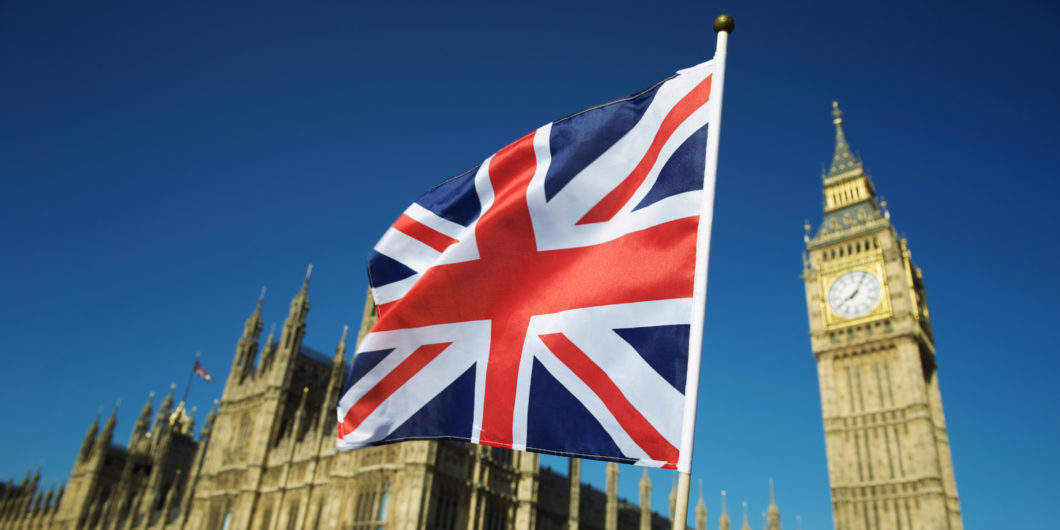Patrick Deneen thinks liberalism has reached a dead end, but perhaps it is only social democracy whose fate is sealed.
Getting Real About the Anglosphere
Brexit was always about far more than arguments concerning Britain’s membership of the European Union. The debates surrounding the 2016 referendum and the 2019 General Election surfaced deeper, longstanding issues like the role of judicial review in Britain’s constitution as well as national sovereignty’s place in international law. One question now assuming prominence is whether Brexit has opened up possibilities for rethinking the Anglosphere as a geopolitical actor.
Several writers have pointed out that the combined GDP of America, Britain, Canada, and Australia is twice as great as China’s. These nations’ legal, economic and political cultures also have more in common with each other than with most continental European countries. In some cases, specific security and treaty arrangements, such as the Five Eyes Agreement and the ANZUS Treaty, bind particular Anglosphere nations together.
Brexit certainly has created space for what I’ll call “core” Anglosphere nations to consider how they might deepen some of their ties in ways that reinforce existing linkages. But any serious reflection upon these opportunities requires preliminary assessment of the very real obstacles to forward movement in this area.
Bumps on the Road
The first impediment is that the national interests of America, Australia, Britain, Canada and New Zealand diverge in some important ways. This is partly a question of geography. Australia and New Zealand, for instance, are always going to be far more attentive than Britain to what Indonesia—a nation whose overwhelming and increasingly devout Muslim population is ten times larger than Australia’s—is thinking and doing. Similarly, location alone means that Britain’s relationship with the EU will always be very different from how Canada or New Zealand see their respective interests vis-à-vis Brussels.
Then there are trade questions. In 2019, Mexico, Canada, China, and Japan—in that order—were the United States’ biggest trading partners. By contrast Australia’s most significant partners were China, Japan, America, and South Korea (with China dwarfing the rest). Thus while there is overlap, there is also considerable variance. Mexico and Canada mean much more to the United States than Australia when it comes to trade.
Further complicating matters are attitudes towards trade. The British, Canadian, Australian, and New Zealand governments remain committed to deepening and widening free trade. Prime Minister Boris Johnson, for example, has stated that he views Brexit as the basis for a wide-ranging liberalization of Britain’s trade with the world. His Australian equivalent, Scott Morrison, has reiterated his desire to continue his country’s steady embrace of trade liberalization which began in the 1980s. Tangible evidence of this was Australia’s recent ratification of a comprehensive trade agreement with Indonesia.
The biggest player in the Anglosphere sandbox, however, is more skeptical about free trade. Australia was one of the few countries to be exempted from the United States raising tariffs on several products in 2018. This owes much to the Australian government’s relentless and ultimately successful lobbying effort that year: one which emphasized Australia’s status as one of America’s most loyal allies and the fact that America has a trade surplus with Australia. It was an argument grounded on economic self-interest but also some particular Anglosphere history. By contrast, America’s close security arrangements with Canada did not prevent the Trump Administration from playing hard-ball with Canadian Prime Minister Justin Trudeau during the NAFTA renegotiation.
Both President Trump and Prime Minister Johnson have signaled great openness to a US-UK trade deal. Eleven American and British conservative and free market think-tanks have even drawn up a detailed blueprint for precisely such an agreement. Johnson should not, however, assume that the Trump Administration will err on the side of generosity whenever negotiations commence. When Donald Trump says “America First,” we have discovered that he means it. Nor does he believe that free trade always puts America first. Inclinations on America’s part to be generous may have also been undermined, as Nile Gardiner explains, by Britain’s decision (unlike Australia) not to ban the Chinese company Huawei from its 5G Network.
Where Johnson may have some leverage with Washington is that the idea of the core Anglosphere as a distinct geopolitical entity—one characterized by high levels of market freedom, strong commitment to rule of law, an emphasis on common law, the English language, and some common religious and philosophical roots—strongly resonates with the center-right of American politics. This is also broadly true of right-leaning politics in Britain, Australia, Canada and New Zealand. The most articulate and committed of those advocating deeper core Anglosphere relations—people like Britain’s Daniel Hannan, Australia’s John Howard and Tony Abbott, and Canada’s Stephen Harper—come from the center-right.
Alas, it is increasingly difficult to find any similar inclinations on the Anglosphere center-left. Figures like Britain’s Tony Blair who has spoken of his admiration of America and Australia are rare indeed. If Jeremy Corbyn’s Labour party had been elected to the Treasury benches in 2019, there would have been no talk of deepening Anglosphere ties. Instead, the United States would have been rethinking its security arrangements with the UK. More generally, the deeper that progressive parties sink into the quicksand of wokeness and globalist internationalism, the more likely Anglosphere sentiments will continue weakening on that part of the political spectrum.
Trade, Trade, Trade
Given these realities, what potential paths exist for further development of the core Anglosphere as a political actor? Conservative governments are not going to be in power forever at the same time in Washington, London, and Canberra. Events like Brexit are essentially once in lifetime opportunities for significant economic and foreign policy resets. How might this situation be best capitalized on?
One starting point is to consider two unique features of core Anglophone relations. The first is their informal character. Obviously many official structures shape interactions between these countries. Nonetheless, core Anglosphere nations share bonds of history, culture, and ways of acting which are simply assumed and don’t have to be institutionalized.
That is quite different from, for instance, the Francophone world. Paris goes to extraordinary lengths to reinforce linguistic and cultural affinities between France and its former colonies. This is complemented by measures such as direct government financial assistance, the education of highflyers from Francophone nations in the same grandes écoles where France’s political and civil service elites are trained, and discreet (and occasionally not-so-discreet) military assistance in dealing with problems ranging from separatist movements to jihadist terrorism.
A second characteristic of core Anglophone relations is that their intangible character has not prevented very particular parts of these relationships from being hyper-institutionalized. This is most apparent in security and intelligence arrangements. These are direct legacies of World War II and the Cold War. If anything, their institutional significance has strengthened as some continental European countries have put some distance between themselves and America as they seek to make the EU a global political factor.
One consequence of Brexit, however, is that Britain has regained control of its own trade policy. Notwithstanding the challenges outlined above, it remains an exceptional chance for the UK to liberalize trade with other core Anglosphere nations, perhaps culminating in trade agreements like the Australia-United States Free Trade Agreement (AUSFTA). Once legally ratified, such arrangements would be very difficult to dislodge, even by future market-skeptic governments.
One reason why AUSFTA was negotiated and ratified by Australia and America in the relatively short period between 2001 and 2005 is because two conservative, free trade-inclined governments were in power. Such governments are now presently in office in Canberra and London.
Granted, the Trump Administration’s instincts are more protectionist that those of Johnson, Morrison, Trudeau, or New Zealand prime minister Jacinda Ardern. But US-UK and Australia-UK free trade agreements, negotiated by conservative governments, would add another strong bond to these nations’ relationships with each other. Indeed, to the extent that public opinion about these topics matters, a 2018 YouGov poll found that 64 percent of British voters and 67 percent of American voters support a strong bilateral trade agreement between the two countries. Politicians like Johnson and Trump with a nose for popular sentiment would presumably be attentive to those numbers.
Canada’s government is not conservative, but a major reason why Ottawa signed its Comprehensive Economic and Trade Agreement (CETA) with the EU in 2016 was to liberalize its trade relations with the United Kingdom. Justin Trudeau may be the world’s most woke head of government, but he knows that Britain is Canada’s fifth largest trading partner. Ottawa thus has reasons to renegotiate Canada’s access to British markets on terms equal to or better than CETA as soon as possible.
Putting the Band back together
Could the core Anglosphere nations enter into a multilateral free trade agreement? I doubt it. The trading interests and partners of Canada, Australia, America, New Zealand, and Britain are more varied than their national security interests. Moreover, multilateral trade arrangements are usually based on proximity, though that can vary from countries adjacent to each other to regions as wide as the Pacific Ocean.
That said, one Brexit effect is that the nation from which the Anglosphere ultimately derives is reassessing many of its most important relationships. While the world doesn’t need yet another political forum, advocates of the core Anglosphere’s geopolitical importance should leverage Brexit as a chance to press these nations’ leaders to meet together regularly in informal settings to discuss how to advance their interests as a specific group of countries with some very particular common roots and links.
Such an initiative wouldn’t be about trying to resuscitate the core Anglosphere world as it existed in 1945 or 1914. Each core Anglosphere nation has undergone enormous internal changes since those times. Nor is it about replicating the Commonwealth of Nations, not least because the Commonwealth consists of over 54 different countries and, more importantly, America is not one of them. Regular meetings of core Anglosphere leaders would nonetheless be a chance to project the Anglosphere as one way of living out some of the central political, legal, and economic commitments that have made the West such a civilizational force.
What’s not to like about that?


